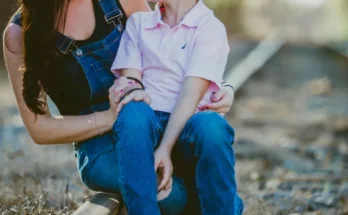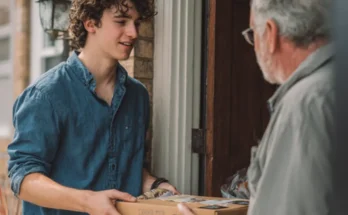I used to think loyalty meant cleaning up after someone you love. That family meant unconditional support, even when it came at the cost of your own peace. But I’ve learned—painfully—that there’s a difference between being supportive and being someone’s emotional janitor.
My brother, Aaron, has always been the reckless one. Charming, impulsive, and magnetic in a way that made people forgive him too easily. He’d crash through life like a storm, leaving broken promises, unpaid debts, and bruised relationships in his wake. And I—his older sister—was always the one quietly sweeping up the mess.
It started small. A forgotten homework assignment I’d finish for him. A lie to our parents I’d cover with a half-truth. Then it grew. Calls from landlords, angry exes, even the police once—each time, Aaron would call me, voice trembling with regret, and I’d drop everything to fix it. Because that’s what family does, right?
But somewhere along the way, I stopped being his sister and became his safety net. His fallback. His fixer.
The breaking point came last year. Aaron had borrowed money from our aunt—money she’d saved for her surgery—and gambled it away. When she called me crying, I felt something snap. Not just anger. Not just disappointment. It was grief. Grief for the version of me that kept believing he’d change. Grief for the years I’d spent stitching his life together while mine frayed at the edges.
I confronted him. Not with rage, but with resolve.
“I’m done,” I said. “I love you, but I won’t keep fixing your mistakes. That’s not my responsibility.”
He laughed at first. “You’re just mad. You’ll come around.”
But I didn’t. I let the silence stretch. I let the consequences find him. And for the first time, I watched him stumble without rushing to catch him.
It wasn’t easy. Guilt clawed at me. Our mother begged me to reconsider. Friends said I was being harsh. But I knew this wasn’t cruelty—it was clarity.
Aaron needed to face the wreckage of his choices. And I needed to reclaim my life.
Since then, I’ve learned to set boundaries. To say no without apology. To love without enabling. I still care for Aaron. I still hope he finds his way. But I’ve stopped sacrificing my sanity for his survival.
Because fixing someone’s mistakes isn’t love—it’s erasure. It erases your time, your energy, your worth. And I refuse to disappear in someone else’s chaos.
Family isn’t about martyrdom. It’s about mutual respect. And sometimes, the most loving thing you can do is step back and let someone fall.
Aaron is still struggling. But he’s learning. Slowly. And I’m healing. Finally.
I don’t regret the years I spent helping him. But I won’t go back. That chapter is closed. And in its place, I’m writing a new story—one where my peace matters, too.


